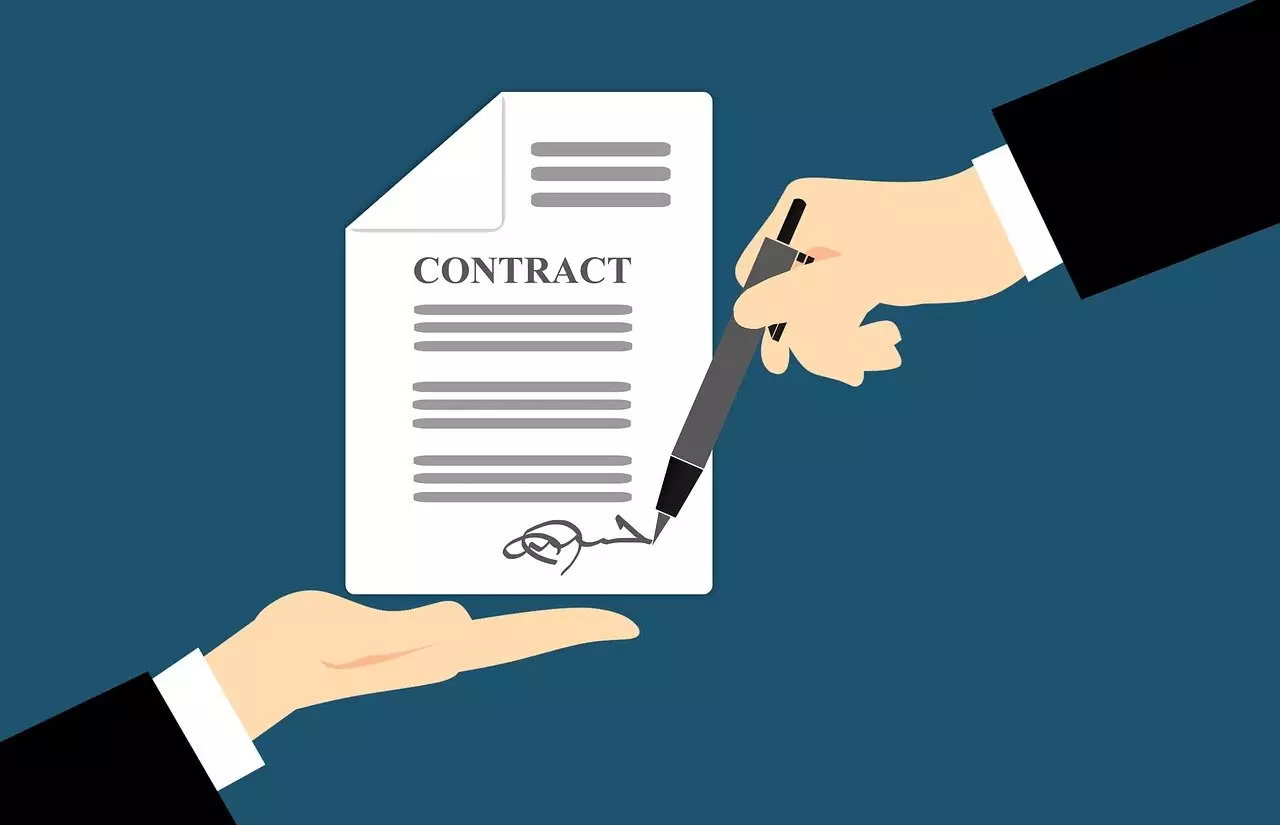When someone is injured in an accident through no fault of their own and due to the negligence of another person, such as a car accident or medical malpractice, they may seek recompense for their costs.
If you’ve been in this situation, you can file a personal injury lawsuit to pay for your medical bills and other expenses incurred as a result of the accident. You will need to work with an experienced attorney who will know how much to ask for in a personal injury settlement to get you the financial compensation you need for your personal injuries. Personal injury law firms are experienced in handling all kinds of personal injury claims and getting injured victims’ compensation for their losses.
Pre-Settlement Funding – an option for you
Pre-settlement funding is a financial product that is provided to plaintiffs with a personal injury claim in certain circumstances. Pre-settlement funding is sometimes referred to as consumer legal funding and, depending on your state, is either provided as a loan or via a purchase agreement under which the plaintiff sells a portion of their potential legal award. It may also be called a personal injury cash advance, but this is only accurate in those states where pre-settlement funding is provided as a loan. You can apply for one as long as your case is pending and use the money to cover daily expenses or costs related to your injuries.
When pre-settlement funding is provided as a loan, rather than requiring repayment immediately from you, the lender will recoup the amount owed when your case is resolved. Accordingly, these types of loans are also known as lawsuit cash advances and are a form of pre-settlement funding or non-recourse financial assistance.
Why Pre-Settlement Fundings are Helpful

Pre-settlement fundings, including personal injury loans, may sound simple but they can be quite complicated to understand. Read on to find out how to get personal injury lawsuit loans or other types of pre-settlement funding and how it all works.
If you are interested in pursuing this option, your best bet is to look for a consumer legal funder online or in the phone book. You may even see TV ads promoting companies specializing in this type of lawsuit funding. Once you’ve done your research and chosen a pre-settlement funding company, you’ll find that the actual application process is fairly straightforward for personal injury loans or other types of consumer legal funding.
This is important because personal injury cases aren’t always resolved quickly. In fact, the process can drag on for months, or even longer. Delays happen when an insurance company drags its heels during negotiations or there are backlogs in the courts. Meanwhile, life goes on for the accident victims and the medical bills stack up.
If you haven’t been able to work because of your injuries, you may soon find yourself falling behind on the rent, mortgage, car payments, credit card bills, utilities, and other bills that impact your personal finances. On top of this, you may also be confronted with mounting expenses related to your injuries, which can lead you to accept an early settlement even if it is below what you expect to receive with your liability claims.
All of this puts undue stress on you and your family at a time when you should be concentrating on your recovery. And unfortunately, your options are limited. You could try to get a traditional bank loan, but without collateral, your chances of qualifying are minimal. For this reason, lawsuit funding may appeal to you.
Frequently Asked Questions about Lawsuit Loans
Can’t I just ask my attorney for a loan?
No. It is not only unprofessional but also unethical for an attorney to grant this type of request for pre-settlement funding. This is because doing so would likely result in a conflict of interest for the law firm.
Let’s suppose your attorney loans you $1,500 while your case is pending. Then after he or she settles your case, you are dissatisfied with the outcome. In fact, you don’t think you should have to pay your attorney back because he or she didn’t settle the case for enough money.
Now let’s think about what might happen next. Would your attorney retain the settlement money until you agreed to the settlement terms and loan repayment? Would he or she sue you? Would you sue him or her? Or would you file a grievance with the state bar? These are just some of the issues that could arise if your attorney agreed to loan you money.
Furthermore, most personal injury attorneys have more than one client. If they started making personal injury loans, their law firm would essentially be offering the same services as the companies that make settlement loans. And in most cases, that’s not what they want to do.
What role does my personal injury attorney play in the funding process?
To get pre-settlement funding, including a loan, your attorney will need to cooperate with the funding company, approve your receipt of the funding and acknowledge your agreement. This is because the company is making a financial decision based on your case and wants certain information from your attorney before issuing any type of pre-settlement funding, including loans. Specifically, they’ll request details about your case from your attorney.
Many personal injury attorneys will do everything they can to convince their clients not to get lawsuit funding. This is primarily because they are concerned that they may break the attorney-client privilege by cooperating with the funding company. The moment your attorney hands over any portion of your file, he or she no longer has control over what may happen to it.
His or her disinclination to breach the attorney-client privilege is also predicated upon his or her legal obligation to act as your fiduciary. Having a fiduciary duty means that he or she is legally obligated to handle all matters related to your case in the way that is best for you.
Finally, you must sign an agreement guaranteeing repayment of the funding, which you and your attorney must acknowledge. This means securing your loan or purchase agreement is largely contingent upon your attorney’s agreement to protect the company’s interest and make sure they are repaid as you agreed.
How does the funding process work?

In most cases, your pre-settlement funding is based on the strength of your legal claim – this means approval isn’t contingent on your credit rating.
Numerous personal injury funding companies allow you to apply online. As part of the application process, you must provide certain information about your case and your attorney’s contact information. The funding company then verifies your information and contacts your lawyer.
To make a determination on the merits of your case and more importantly, the potential settlement, underwriters look for analogous fact patterns and study the average settlement amounts for cases like yours. If the funding company decides your case has a high probability of settling at an amount that they think is enough to repay their funding, they will provide you the money, funding it to the bank account you specify based on your lawsuit settlement.
Within this context, it is important that you understand how much funding companies usually agree to give applicants. In most cases, this is no more than 10 percent of the amount they think the case will be settled for.
If the funding company thinks your case will settle for $50,000, the most they’ll probably provide you is $5,000. Although it may not seem like much, it may be all you need to pay your bills until your case is resolved.
If you don’t win or your case isn’t settled, you won’t owe the funding company anything. This is one of the benefits of pre-settlement funding.
What are the disadvantages to personal injury funding?
As we just noted, these types of loans are usually fairly small. Another disadvantage is that a patchwork of regulation under state and federal law may allow personal injury finance companies to charge significant charges and fees.
Charges and fees

The type of charges and fees you may be liable for may vary from one state or funding company to another. Where the funding agreement is provided via a non-recourse purchase agreement, you may see the funding company charging flat fees based upon monthly or other periodic increments. In states where funding is provided as a loan, there may be different interest rates charges depending on your state of residence, but these interest rates may be significant. This means that even relatively a small loan can quickly accumulate high-interest charges and fees.
When confronted with the repayment amount, some people settle their case quickly and for less than it is worth to avoid repaying excessive amounts. Make sure you ask about any upfront fees from the funding companies.
Remember that while your settlement may be substantial, you’ll still have to pay your attorney’s fees and costs. Then you’ll have to pay back the funding in an amount far above the original amount you received.
What Kind of Personal Injury Cases are Considered for Personal Injury Pre Settlement Loans?

The type of personal injury claim you have is irrelevant to whether you can get a personal injury lawsuit loan or other type of litigation funding. Any of the following types of personal injury cases may be considered if you need pre-settlement funding:
- Auto accidents
- Motorcycle accidents
- Bus accidents
- Pedestrian collisions
- Worker’s compensation accidents
- Medical malpractice
- Defective product lawsuits
- Wrongful death claims
The personal injury funding company will look at your personal injury case to determine if it qualifies regardless of how the accident occurred before it will grant any pre-settlement funding.
Do I have Any Risk with Personal Injury funding?
If you are approved for a personal injury lawsuit funding, including a loan, generally you don’t carry any risk of paying it back. All the risk with pre-settlement funding is carried by the personal injury funding company, in most cases. Typically, if something happens and you lose your personal injury claim, the funding company has no recourse.
Even if you win the lawsuit, you may be awarded a lower amount from the insurance company for your personal injury claim than you were expecting. If the amount awarded isn’t enough to pay all the bills in your personal injury case, the funding company may not receive their full amount.

While this is the standard for pre-settlement funding, you don’t want to assume any of the terms of the funding. Make sure you read the fine print or have your attorney read the contract before you sign to protect yourself and your personal injury settlement against the lawsuit funding companies.
Do You Still Have to Pay Your Bills While Waiting for Personal Injury Settlement Funding?
Even if you’ve applied for pre-settlement funding for your personal injury claim, you are responsible for any bills that accumulate. Some creditors may be willing to wait until the lawsuit has been awarded before seeking repayment while others will require payment during the interim.
Ongoing bill payment is the main reason that you may consider personal injury lawsuit fundings in the first place. They can help carry you through until you receive your personal injury settlement.
What are the Main Differences Between Personal Injury Lawsuit Fundings and Traditional Loans?
While traditional loans and personal injury loans are quite unique, two main differences exist.
Getting approved
Traditional lenders look at your credit rating, employment history, and other factors to determine if they will approve your loan request. When you are seeking a personal injury loan, they are approved based on your personal injury lawsuit and how strong the case is for a future settlement.
Legal funding companies don’t look at your credit history to provide settlement funds. Once approved, you can receive immediate cash to cover lost wages, medical expenses, and more.
Repayment
The second main difference between traditional funding and pre-settlement funding is that you must make monthly payments to pay off the balance with regular loans. With personal injury settlement funding, you aren’t responsible for any payments. In fact, the attorney will be the person who submits payment for pre-settlement funding when your case is awarded.
How Much Does Personal Injury Lawsuit Funding Cost?

The fees and charges can vary by state, by personal injury lawsuit funding companies or even within the same company and different cases. The funding company will consider the strength of the case, the expected timeline for payment, and the amount being requested in the lawsuit to determine the fees. Make sure you are aware of the cost for your pre-settlement funding before you accept the offer and find out about any hidden fees.
Some Tips if You’re Considering Applying for Lawsuit Funding

- Do your research. Look for the personal injury lawsuit funding company that offers the best repayment terms. If you are selling a portion of your potential settlement, make sure you understand how that repayment amount will increase over time. If you are executing a loan agreement, look for the lowest interest rate and the fewest administrative fees, or points. Be sure you understand what the compounding interest will be and how you can compute it yourself.
- Beware of and avoid brokers, because they charge higher fees. Deal directly with a personal injury lawsuit funding company instead. Here’s how you can tell them apart: a broker will refer you to a funding company and a funding company will make the funding directly to you.
- Make sure you know exactly how much the loan will ultimately cost you when your case is finally resolved, and you receive your financial compensation.
- Don’t sign anything until your attorney has reviewed the contract or loan agreement.
- Heed your attorney’s advice. He or she is protecting your best interests, so it is important to listen to him or her and act accordingly.
Oasis provides pre-settlement funding, also known as consumer litigation funding, to its customers through different products depending on their state of residence or cause of action. Many consumers will be provided pre-settlement funding in the form of a purchase agreement, which assigns a portion of the pending proceeds from their legal claim. Other consumers, such as those in CO, CT and SC will be offered a funding in the form of a pre-settlement loan, sometimes referred to as a lawsuit loan. These transactions have important differences, therefore, consumers should carefully review and be aware of the type of transaction that is offered to them by any funding company.